Perhaps crossing Cairo would be much easier on Friday morning, the only moment during the week when the enormous traffic seems to be less intense. But I did not want to wait for another day. After almost a month without cycling I hopped onto the saddle as soon as all the repairs had been finished.
The ride through the city, although long and stressful, was quite straightforward. Nevertheless, I managed to take a wrong lane, and before I could realize the consequences I was descending with dozens of cars into a long, deep tunnel. There the traffic jammed. Being stuck underground with hundreds of exhaust pipes pumping fumes out is not the most pleasant aspect of cycling. Especially when the traffic slowly goes forward and begins to climb up to the surface. The cars, as well as cyclists, use more energy while going uphill. While the former produce more smoke in the process, the latter needs more oxygen. The conflict was inevitable, and when I finally reached the surface, I felt quite dizzy and my vision was a bit blurry. But on the other hand, I could call the Cairo's air clean and fresh for the first time!
Having one look more at the Pyramids and waving off touts, which appeared from nowhere like mosquitoes, I said goodbye to this monster city. Or rather "see you", as I would have to come back again to pick up the visa extension. After fixing a puncture, which marked exactly 12000km, I was out of Cairo. Just to get into it's smaller brother, the 6th October City. That Cairo's bedroom appeared to be large enough to keep me within urban area long after the sunset. Finally I planted down the tent somewhere in the sand. And I would do the same for the next week.
Crossing of the world's biggest desert began with a ride through rather flat and featureless terrain. For the most of the time it was just boring, and even annoying, especially that a strong wind blew exactly the opposite way. Doing only 50km per day I felt like wasting time. Fortunately, after five days the wind got weaker and the surroundings slowly began transform into more and more interesting shapes.
The contact with people was almost none. Leaving urban areas I was given free oranges by happy and smiling fruit sellers. Such gestures of hospitality are just so lovely and happen much more often here than back in Europe. However, the next morning I had quite strange encounter. I became used to have stupid conversations with people who only think they could speak English, but this time it was absolutely bizarre:
I was having a break on the roadside, next to an abandoned kiosk, which I
had inspected as an interesting place to stay overnight, if needed.
"Are you here?", asked a man from the car which had just pulled over.
"Well, I am here", I answered, unsure what was the real question, "and I'm
going there", I added pointing my direction.
"Dead bodies?!", he asked, out of the blue.
"What?!", I replied, startled.
"Have you seen?", he said, pointing along the roadside with his hand.
Perhaps I mentioned already, that the only thing I had not seen discarded along
Middle Eastern roads, it had been a dead man's corpse. Was the time coming to
have the collection completed?
"Sorry, I don't understand", I tried to get some explanation. "What do you
mean?"
"Our relative died here. We are looking for. Have you seen places for dead
bodies?", he continued.
"Well, you mean a cemetery?", I asked in hope that I had understood
correctly. "I haven't seen any."
"OK, thank you!", he said and drove away.
After the last weeks I began to think that Egypt was a country exceptionally rich in lunatics. Or maybe a culture shock had finally got me? For sure, going into a desert could help me.
Otherwise, the rare encounters with people were quite positive. Stopping by the road and putting the bike in some awkward position usually caused someone to pull over and ask if I needed any help. On the other hand, I was stopped twice by Egyptian hitchhikers, asking for water. This looked ridiculous, how someone could venture into the desert not only without water, but even with no plastic bottle to carry it in. Fortunately, I happened to carry a spare one and could share my drink with them.
As it comes to water, there was no difficulty in finding it. Over the 350km distance there were two restaurants and several ambulance stations, equipped with huge tanks. The water was the Egyptian tap standard — with metallic taste and chlorine smell, but was still water.
The nights were cold. My sleeping bag, designed for temperatures over +4°C, was not enough and I woke up numerous times with numb toes. On the other hand, the clear sky brought incredible views of the stars, and that was one of the reasons I stopped picking up the tent. With Orion and Taurus dominating the evening sky, I could also see the Andromeda's Nebula, the Double Cluster, and during the morning hours — Praesepe in Cancer. Meteors were also abundant, spicing up the great insight into the space.
As I am getting closer to the Tropic of Cancer, I also started looking for unknown constellations of the southern sky. So far the results are not impressive, but I managed to spot Phoenix and some minor ones.
All my astronomical observations are being aided by Stellarim interactive sky map, which I recommend. This is a free software, of course.
After seven days I reached Bahariya, the first oasis, equipped with a hot spring. As I figured out, the water there is being intercepted and sometimes redirected somewhere else, but usually the rusty pipe pours warm water into a crude, rectangular, concrete tank. The place totally lacks charm, but the bath is still relaxing.

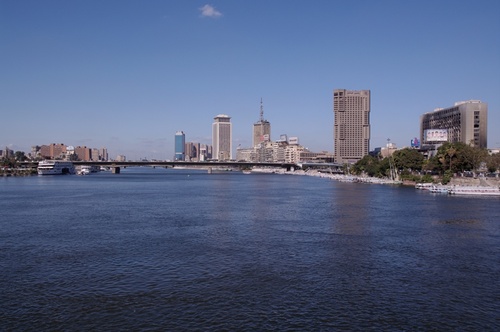
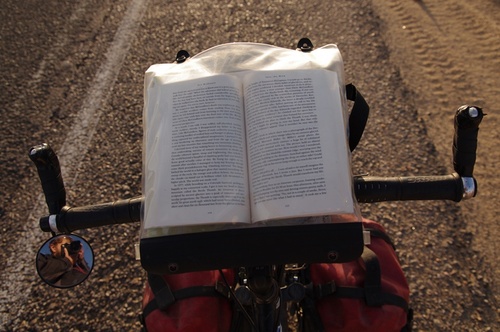
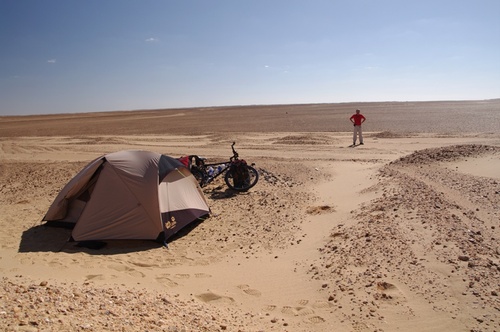
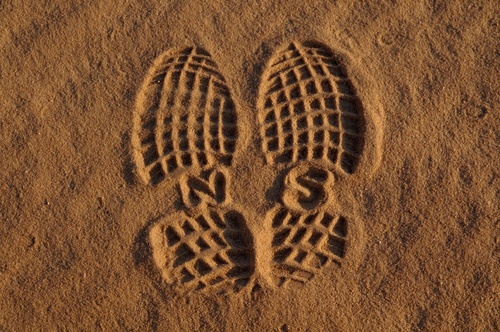
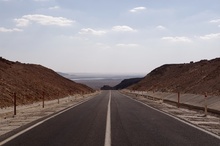
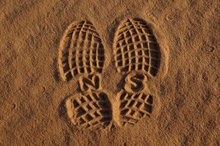
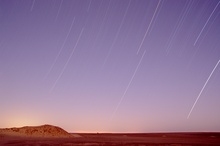
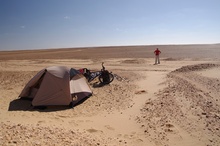
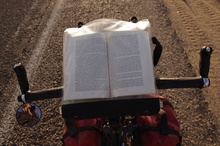
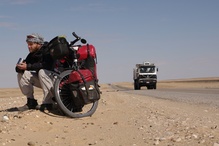
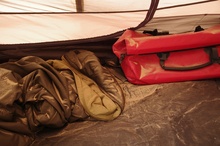
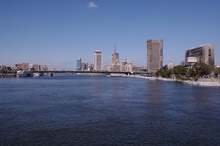
Comments:
iwo
A o co chodzi z tym powrotem do Kairu?
Trzymaj się!
Michał
mama
Stevie
Good to see you on your feet again.Really enjoy reading your blog.
This part was funny: ''After the last weeks I began to think that Egypt was a country exceptionally rich in lunatics.''
Ha ha.......
Stevie
Arkosław
Karolus
Tomek Krajcarski
Pozdrawiam z mroźnego Wrocławia